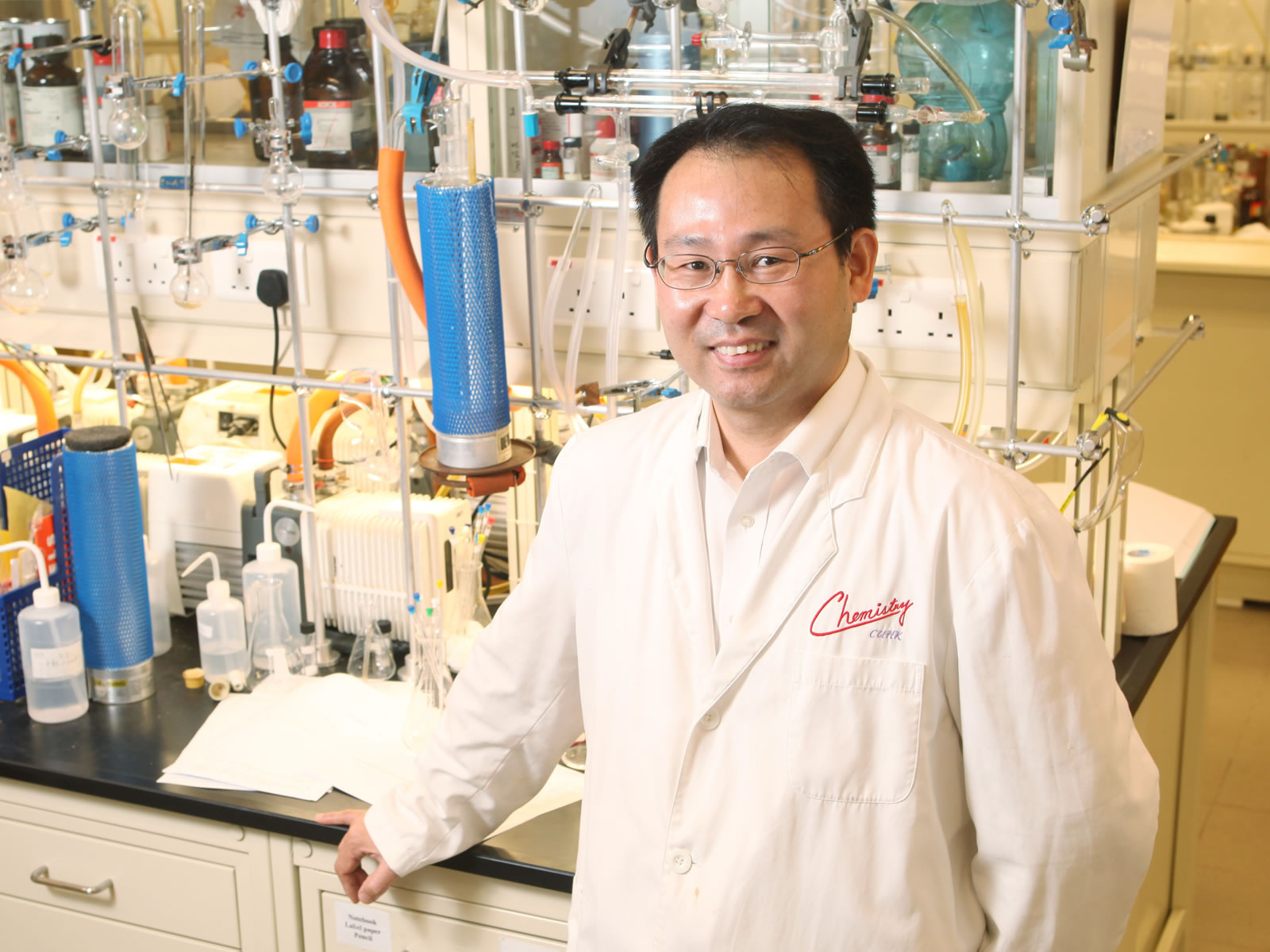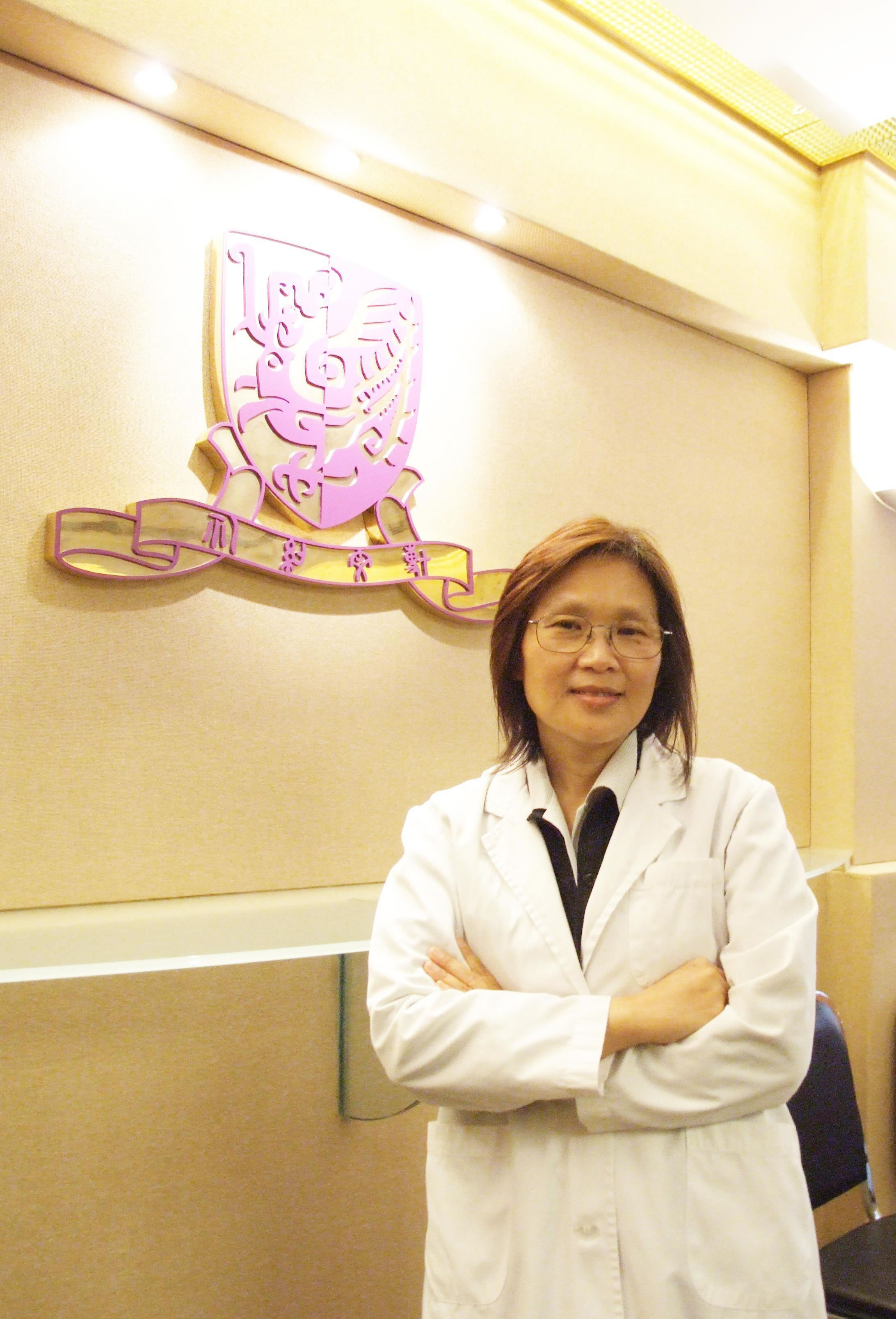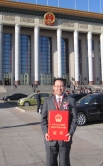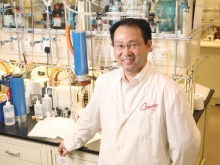News Centre
Two CUHK Scholars Awarded State Natural Science Award Twice
Two outstanding scientists of The Chinese University of Hong Kong (CUHK), Prof. Xie Zuo-wei, Professor of Chemistry, and Prof. Chan Hsiao-chang, Li Ka Shing Professor of Physiology and director of the Epithelial Cell Biology Research Centre were each conferred a second-class award of the 2008 State Natural Science Award (SNSA) in recognition of their achievements in the projects “Carboranes and Metallacarboranes: Synthesis, Structure and Reactivity” and “Molecular mechanism underlying sperm maturation in the epididymis” respectively. The award presentation ceremony was held today (9 January) in Beijing. Previously, in 1997, Prof. Xie and Prof. Chan were respectively conferred a third-class and a fourth-class award, demonstrating extensive recognition of the increasing research strength of CUHK.
The “Carboranes and Metallacarboranes: Synthesis, Structure and Reactivity” project, solely conducted by Prof. Xie Zuo-wei, focuses on the research at the interface of organic and inorganic chemistry, which will have a high impact on catalysis and materials science. His work opened up brand-new horizons of knowledge. Its milestone discoveries include: (1) the preparation of the largest carborane (supercarborane) and metallacarborane known so far, which has broken significant new ground in supercarborane chemistry; (2) the first syntheses and full characterization of carbon-atoms-adjacent and carbon-atoms-apart arachno-carborane anions and their metal complexes, enriching greatly the chemistry of carboranes; (3) the first synthesis of early-transition-metal-carboryne complexes, leading to new methodologies for metal-mediated functionalization of carboranes; (4) the development of a novel class of linked carboranyl-polyene versatile ligands, which finds a wide range of applications in catalysis and organometallic chemistry. This project has led to a total of 90 scientific papers published in the most prestigious international chemistry journals. Part of the work has also been highlighted in the March 2005 issue ofC&E News.
Professor Xie’s research has a number of potential applications. The novel class of catalysts for olefin polymerizations he developed may lower the production cost of plastic materials, and dramatically reduce the metal impurities of these materials, thereby improving the purity of the products. A US patent has already been granted to his invention. On the other hand, the supercarboranes Prof. Xie prepared may be a new class of reagents for Boron Neutron Capture Therapy, which can selectively destroy cancer cells upon radiation.
Prof. Xie is honoured to receive state recognition for his chemical research again. Given that basic scientific research is a driving force for science and technological development of society, he hopes the government to inject more resources to enhance the development of basic scientific research.
Prof. Chan Hsiao-chang collaborated with Prof. Zhang Yong-lian of the Shanghai Institute of Biochemistry and Cell Biology, Chinese Academy of Sciences (CAS) in their project to investigate sperm maturation in the epididymis. In studying the functional role of a novel gene in the epididymis, they used an epididymal epithelial cell and bacterial coculture system to demonstrate the antimicrobial action of the newly found peptide, elucidating a novel host defense mechanism in the male reproductive tract. As the paper was published and recommended by the international journal Science, it garnered much international attention and was subsequently widely reported by the media and journals in the US, UK, France and Germany etc., including Lancet and Nature Medicine. Prof Chan’s team further discovered that the same antimicrobial peptide could act on calcium channel and promote calcium entry into sperm thereby initiating sperm motility. The discovery not only explains the molecular mechanism involved in the initiation of sperm maturation in the epididymis, it also revealed the dual role of defensin in the male genital system. The finding was published in Nature Cell Biology as a recommended article.
Since the finding went public, it triggered a heat wave in the research of defensin molecules in the reproductive system, with more than 90 new defensins found in the epididymis, which was reported by different research groups worldwide. Prof. Chan and Prof. Zhang’s pioneering discovery has greatly contributed to the understanding of molecular mechanisms regulating male fertility. It has also provided new ground for the development of diagnosis and treatment methods for male infertility or contraception. Two related patent applications have been granted by China and USA, which has laid the foundation for further applications of the male reproductive tract defensins in diagnosis and treatment of sexually transmitted diseases and male infertility.
Prof. Chan said, “I am glad to receive the award since this is the result of a collaboration between CUHK and CAS. I hope this award will promote further collaboration between The Chinese University and other institutions.”
Organized by the State Council, the award is the highest honour given by the Central Government in recognition of advancement in basic scientific research. In 2008, over 160 research projects were short-listed for the award. After a stringent selection process, a total of 34 research projects were presented the second-class prize, including the projects led by Prof. Xie and Prof. Chan. No first-class prize was awarded in 2008.
Over the years, a total of 10 CUHK professors have received the SNSA. Besides Prof. Xie and Prof. Chan who received the award twice, Prof. Leung Yee of the Department of Geography and Resource Management, Prof. Henry Wong, Prof. Wu Chi and Prof. Jimmy Yu of the Department of Chemistry, and Prof. Dennis Lo of the Department of Chemical Pathology received the SNSA second-class award, Prof. Thomas Mak of the Department of Chemistry and Prof. Tony Lee of the Department of Information Engineering received the SNSA third-class award, while Prof. Patrick Wong of the Department of Physiology received the SNSA fourth-class award.





